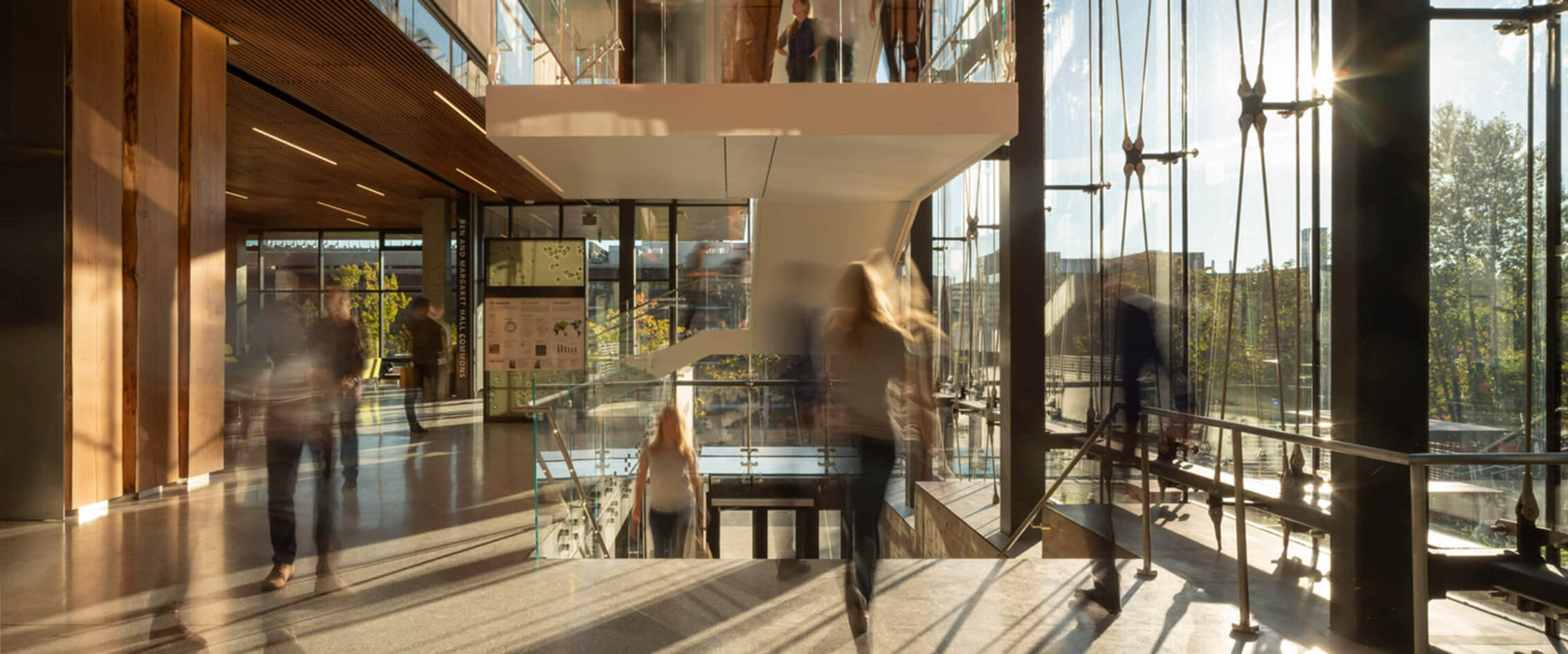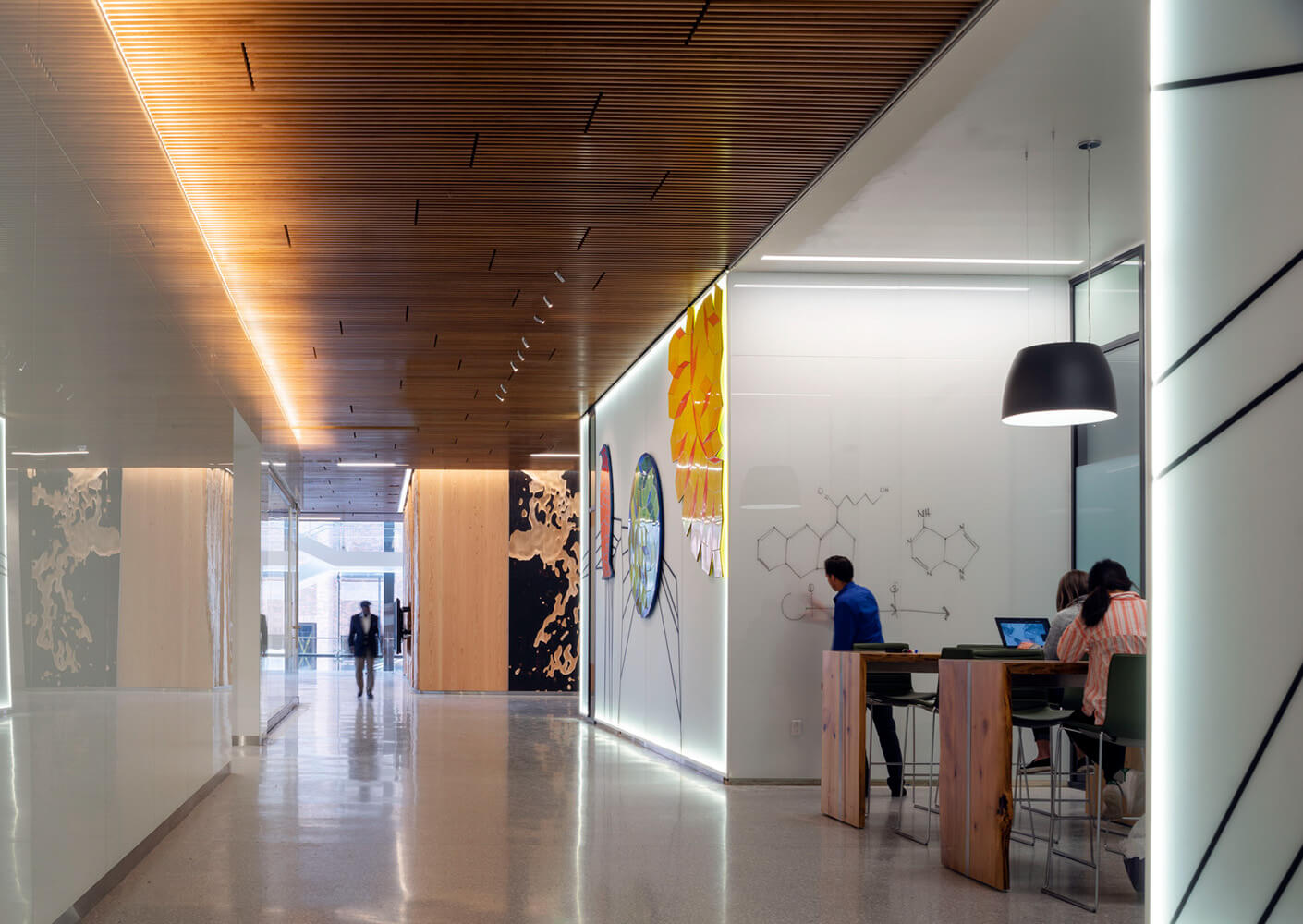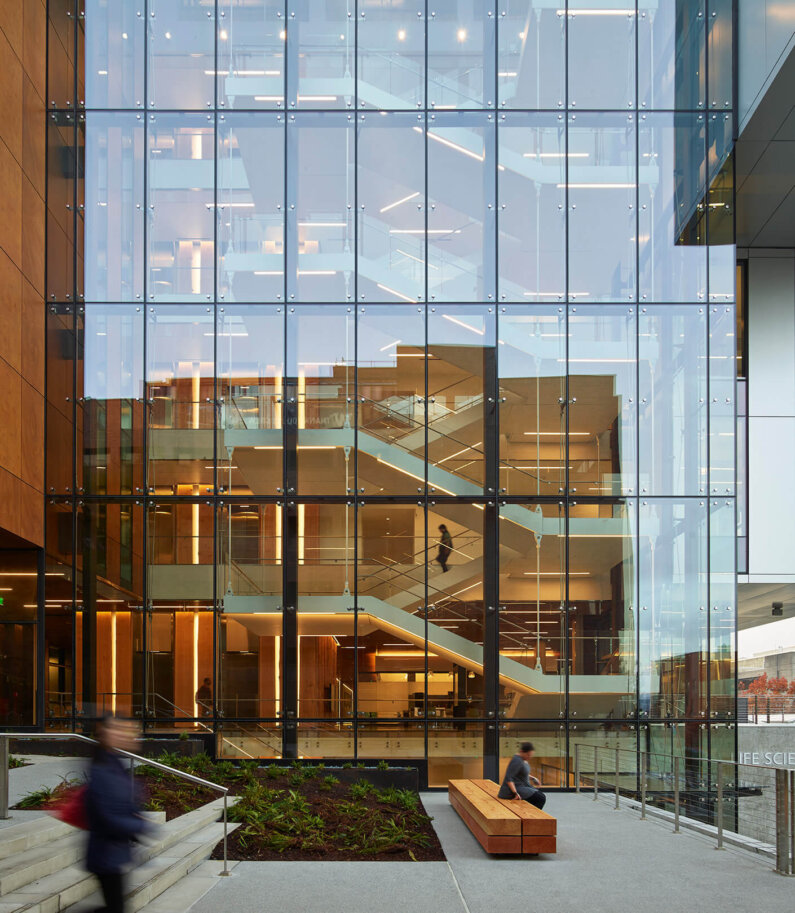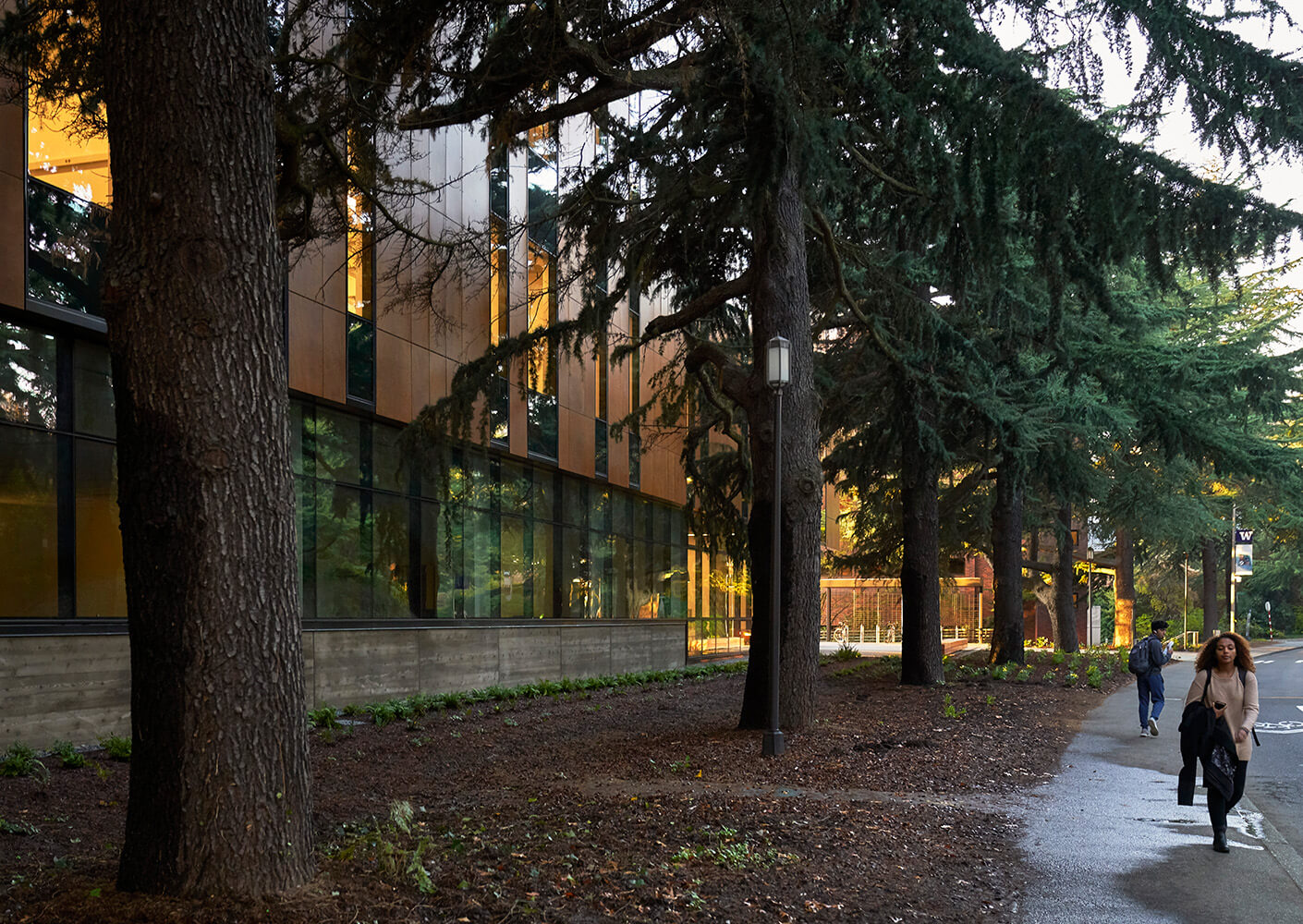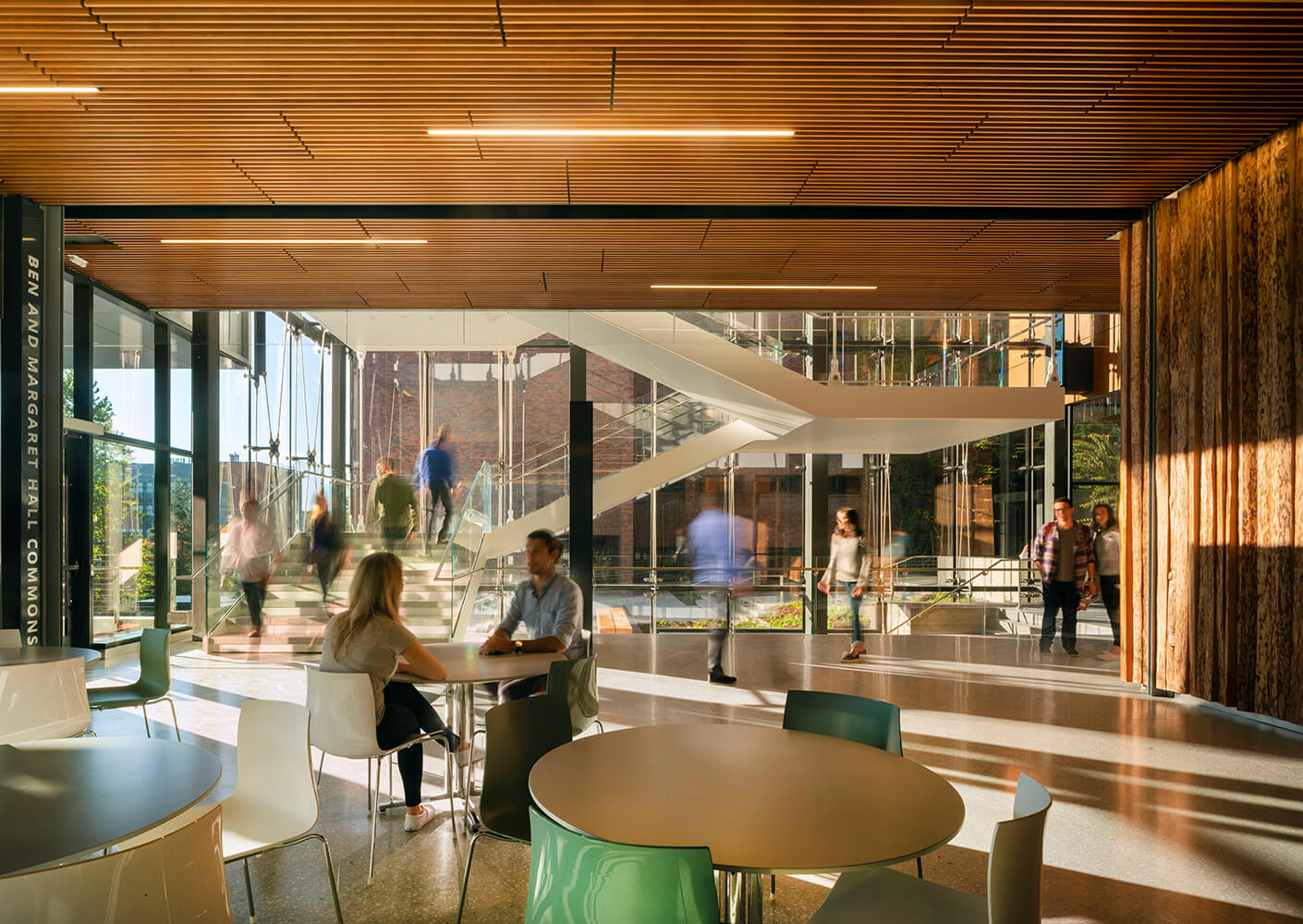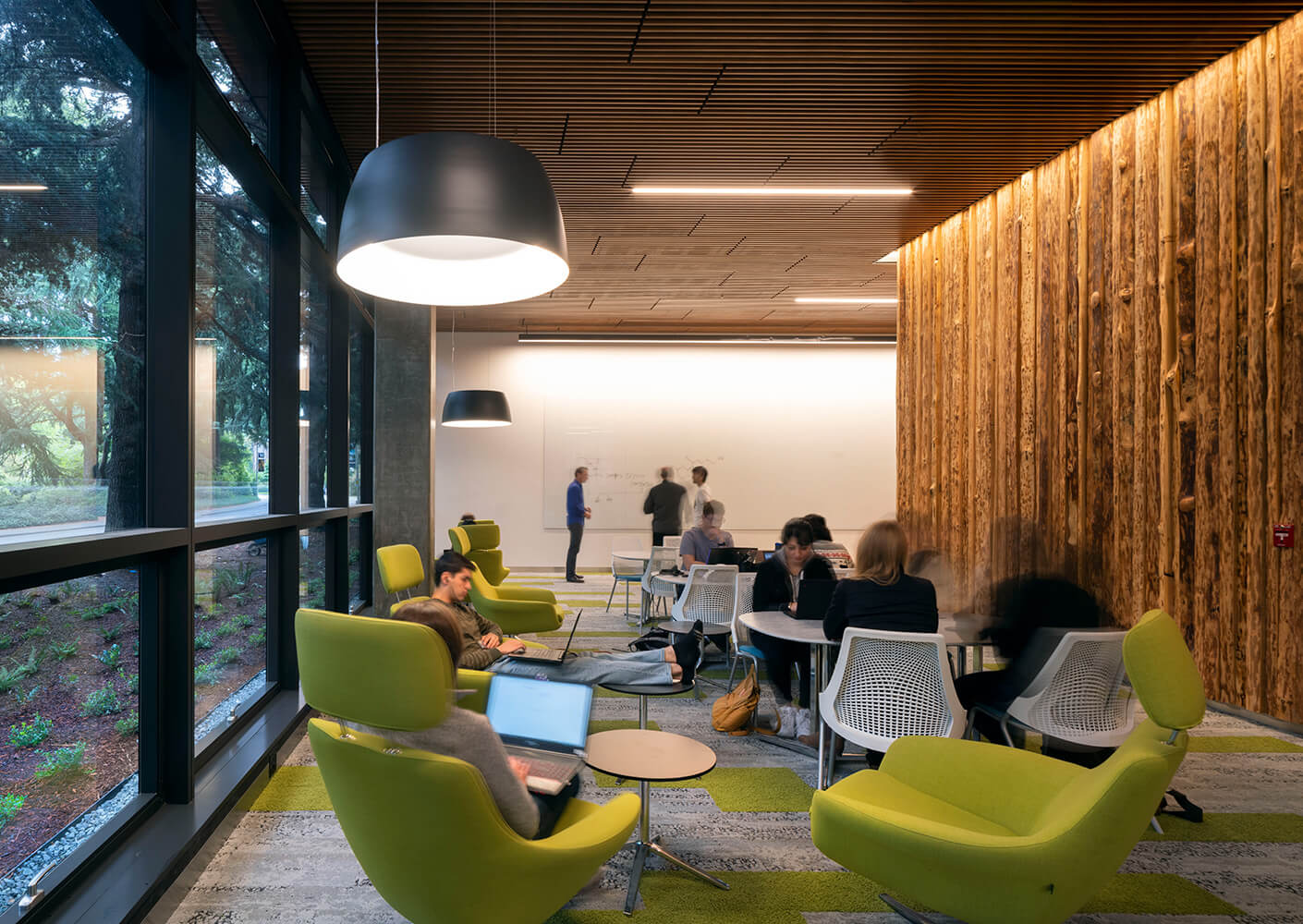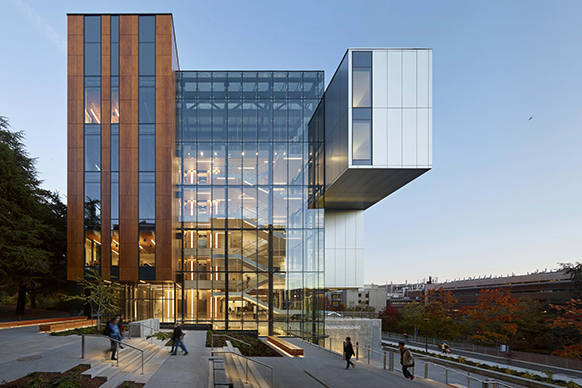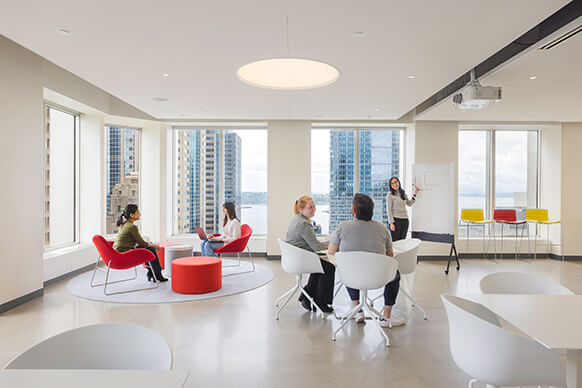Congratulations to our Seattle-based design team and the University of Washington for earning one of the most significant architecture awards in the U.S.—a 2023 AIA National Award. The award recognizes UW’s Life Sciences Building for its collaborative research-based approach to climate action and healthy design. The annual program celebrates the pinnacle of contemporary architecture, highlighting the many ways buildings and spaces can improve lives with a focus on place, purpose, history, and environmental sustainability.
“UW Life Sciences Building is the culmination of over two decades of planning and design of teaching and research facilities on the UW Campus and lessons learned brought forward in a beautiful and collaborative next generation environment for STEM students and faculty,” says managing principal Anthony Gianopoulos.
